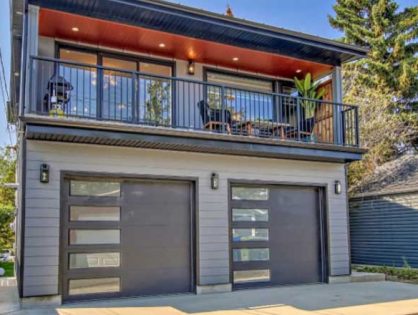Provided by Genworth Financial Canada
Do you know whether you qualify for a mortgage and, if you do, do you know how much you can afford? Before you can even begin to think about buying a home, you should answer both of these crucial questions.
A smaller down payment will mean your monthly mortgage payments will be higher, but it may allow you to buy sooner rather than later.
Qualifying for a Mortgage
Most lenders look at five factors when determining whether you qualify for a mortgage loan:
- your income
- debts
- employment history
- credit history
- value of the property you want to buy
One of the first questions a lender will consider is how much of your total income you’ll be spending on housing. This helps the lender decide whether you can comfortably afford a house.
A lender will then look at your debts, which generally include house payments as well as payments on all loans, charge cards, child support etc. that you make each month.
A history of steady employment, usually within the same job for several years, helps you to qualify. But a short history in your current job shouldn’t prevent you from getting a loan, as long as there have been no gaps in income over the last two years.
Good credit is very important in qualifying for a loan and the lender will want to know that the house is worth the price you plan to pay.
How much can you afford?
The size of your down payment affects the amount of your monthly mortgage payments. A smaller down payment will mean your monthly mortgage payments will be higher, but it may allow you to buy sooner rather than later.
A down payment of 25 per cent or more will qualify you for a conventional mortgage. If it is less than 25 per cent, the mortgage must be insured with a mortgage insurance company, such as Genworth Financial Canada.
Homes can be purchased with as little as five per cent down.
Mortgage payments for principal, interest and taxes generally should not exceed 30 per cent of your gross monthly income. Simply multiply your gross monthly income by 0.30 to determine your maximum monthly payments. If your gross monthly income is $4,000, the most you can afford is $4,000 x 0.30 = $1,200.00.
Don’t forget closing costs such as land transfer tax, legal fees, building inspection, home insurance and realtor fees, which can amount to 1.5 per cent of the purchase price.
When budgeting, also consider other monthly-related expenses such as condominium fees, heat, hydro, water, property tax, insurance and household maintenance.
And one last tip – get a pre-approved mortgage. This free service from lenders comes with no obligations, helps to confirm your financial boundaries, and frees you to focus on finding the home you want.
Additional information is available from Genworth Financial Canada at http://www.genworth.ca.




